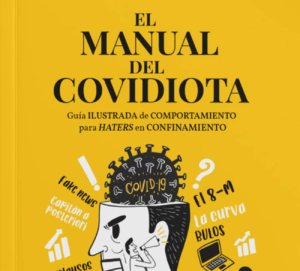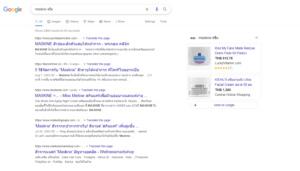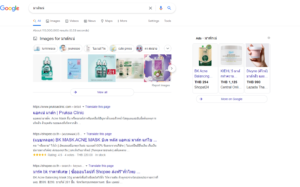Talking COVID
As the developed world begins to emerge from the pandemic, the impact of COVID-19 continues to be a global reality, with a seismic generational effect. It’s little wonder that as we seek to describe our new way of life, or express our experiences, our vocabulary has grown.
At Locaria, we wanted to know how people are speaking about COVID, across the major languages, to help marketers get closer to their customers and gain cultural insights at this sensitive time. Our team of linguistic and cultural experts have pulled together the key terms emerging from the pandemic, with some interesting findings.
Our research has shown that, while different languages have coined their own, often culturally specific terms, the experience of living through a pandemic has driven global themes:
Tribes

It’s ironic, but something shared across the languages investigated, was the need to segregate ourselves into tribes. This can be based on how we respond to the pandemic, or even just the fact of being born during the crisis, and becoming “lockdown babies” or “Корониалы” or “coronials” in Russia.
The term “covidiot” has become commonplace in not only the UK, but also in Germany, Italy and Spain (“covidiota”) as a derogatory way of describing somebody who fails to take the pandemic seriously or even denies the existence of COVID-19 entirely. In Germany, the term was showing a search volume of 4,400 on Google, meaning people aren’t just talking about covidiots, they are actively searching for them.
In Italy, a similar tribe “i no mask” aka the anti-maskers, has emerged. This picks up a similar structure used for the plural noun for anti-vaxers, “i no vax”, a common term before the pandemic.

At the other end of the spectrum are terms used to describe people who take the pandemic extremely seriously, to the extent of wishing to control and chastise others around them who they see as breaking the rules. In the Netherlands, this group is sometimes termed “coronazis”, while in Spain “policías de balcón”, painting a vivid scene of people shouting down from their balconies at those in the streets not wearing masks or maintaining social distance. In Japan, the term “自粛警察”, literally the “restraint police” is also becoming mainstream, achieving a search volume on Yahoo Japan of 18,100, at the time this research was conducted.
Way of life
Equally important to differentiating between tribes, has been expressing the new ways of living that people in many markets have had to adapt to, and their associated feelings. A number of terms have emerged that are specific to local regulations or activities driven by the pandemic, a selection of which you can see below.
|
Market |
Term |
Definition |
|
Netherlands |
Anderhalvemetersamenleving |
Literally, “1,5 m-society”, referring to social distancing rules |
|
Germany |
Hamsterkäufe |
Hoarding groceries |
|
France |
Attestarder |
Filling in your authorization (attestation de déplacement) for work, travel, sports activities… when you are already in the street |
|
Spain |
más-carillas |
Word play meaning “expensive masks” |
|
Italy |
tamponare |
The standard definition is “to stop-up” or “to rear-end”, but now also “to swab-test” |
|
Italy |
dad |
Short for “didattica a distanza”, remote teaching |
|
China |
无接触配送 |
Contactless delivery |
|
China |
网课 |
Online courses. Also, increasingly, the negative feeling of struggling to manage home-schooling |
|
Russia |
Карантикулы karantikuly |
Quarantine holiday |
|
Thailand |
กักตัว |
Quarantine/ self-isolate |
|
Japan |
不要不急の外出 |
Non-essential outings |
|
Japan |
3密 |
Three Cs: Closed spaces (密閉), Crowded places (密集) and Close-contact settings (密接) |
Aesthetics
All around the world, the use of conference call technology has boomed. During one week in March last year, downloads of the app Houseparty in Spain, were 2,360 times the weekly average in Q4 of 2019. The default setting of most of these apps is to show your own image on-screen, meaning we have all been looking at our own faces a lot more than usual. It is no surprise then, that how COVID-19 has affected our looks is another area where new terms have emerged.
 For example, in the Netherlands, “Coronakapsel” means the first haircut after not having had one for months due to the pandemic, and “coronabdos” has been used in France to refer to the weight gain many have experienced during lockdown. Of course, some people are so good looking that even with a mask on, their beauty shines through. In this case, a Thai word meaning “go through the mask”, “ทะลุหน้ากาก”, has been coined in a GQ partnership with L’Oréal.
For example, in the Netherlands, “Coronakapsel” means the first haircut after not having had one for months due to the pandemic, and “coronabdos” has been used in France to refer to the weight gain many have experienced during lockdown. Of course, some people are so good looking that even with a mask on, their beauty shines through. In this case, a Thai word meaning “go through the mask”, “ทะลุหน้ากาก”, has been coined in a GQ partnership with L’Oréal.
Arguably, however, more people have been suffering from “maskne”, or spots on the face resulting from prolonged use of a face mask. This term has become common-place in not just English and German, but also in Thailand, where it has been used untranslated in mainstream beauty media.
The use of English in Thai is becoming more commonplace, particularly for new words. Thai has a lot of tonal vowels and characters that require shifting keyboards, so shifting to English for a few letters is not seen as onerous. It is even the case that search results using English terms can be more relevant than using a Thai transliteration. For example, in the first set of Google search results shown below, where the English word ”maskne” is included, the results are directly related to the condition of maskne.

Whereas in the second set of results, which uses a transliteration of “maskne” into Thai characters, the results are about face masks and face creams, not directly about the condition of maskne.

Marketers and content creators need to stay close to how language is evolving on the ground and not assume that translated or transliterated terms are going to resonate with local audiences.
Wellbeing
The mental health challenges brought about by the restrictions suffered by many have driven a range of terms across markets. The general term for the negative impact of Covid felt in Japan, is “コロナ禍” or “corona scourge”. The prefix “コロ”, used in many words emerging from the pandemic is a transliteration of the sound “coro”, short for “Corona” and was not accepted by Google ads at the time of this research, indicating it is seen as a very negative term in the market. Restricted terms are an important consideration for performance marketers to consider when launching local language campaigns.
In many markets, pandemic-related words have been blended with pre-existing medical terms, illustrating how the pandemic is directly impacting wellbeing. For example, in France, one may be an “hypoconfiniaque” (somebody suffering from lockdown anxiety), whereas in francophone Africa, people may be suffering from “coronasomnie” (Corona-insomnia). “Cuarempena” in Spain literally means “quarantine sorrow”, and in Germany people are experiencing “Pandemie-Müdigkeit” (pandemic fatigue).
To build intimacy with consumers, marketers need to access in-market expertise that can explain the emotional responses to the pandemic being felt on the ground, so they can tailor their response to be both effective and sensitive. One good way to do this can be through Social Listening.
Brands in everyday speech
Etymologists refer to the practice of turning nouns into verbs as “anthimeria,” which means a change in how a word is used. Popular global brands have seen this happen many times, with consumers choosing to “hoover” their rugs, or indeed “Google” something. In the case of Зумиться “zumitsya”, Russians have shifted the brand term for the videoconferencing tool Zoom from a noun to a verb, meaning “to have a zoom meeting”.
 Russian also shares the term “зумбомбинг” with the French “zoombombing”, referring to the practice of people joining zoom calls unsolicited and disrupting proceedings. In fact, French has developed a number of brand-based words during the pandemic including “Whatsapéro” and “Skypéro”, referring to the practice of sharing drinks with friends or family over the referenced chosen communication platform. The more generic term for online drinks in the time of COVID-19, “Coronapéro”, is now mainstream enough to have gained its own wiki.
Russian also shares the term “зумбомбинг” with the French “zoombombing”, referring to the practice of people joining zoom calls unsolicited and disrupting proceedings. In fact, French has developed a number of brand-based words during the pandemic including “Whatsapéro” and “Skypéro”, referring to the practice of sharing drinks with friends or family over the referenced chosen communication platform. The more generic term for online drinks in the time of COVID-19, “Coronapéro”, is now mainstream enough to have gained its own wiki.
Online services becoming global household names is perhaps to be expected, but it’s important for global brands to be aware that inviting consumers for a “Whatsapéro” in France, will not work for French-speaking markets where drinking alcohol is not the norm, such as in Tunisia. Terms may work across markets and languages, but not always cultures.
In summary:
COVID-19 is a global phenomenon touching deeply upon local cultural norms. If marketers want consumers to think of them when planning to celebrate their lockdown babies over a quarantini, then engaging, localised content is a must.
Language moves fast. Marketers need to ensure their multilingual content is keeping pace with language development on the ground. Global brands have a particular challenge to navigate linguistic intricacies along with cultural differences while maintaining a consistent brand experience worldwide.
At Locaria, we support brands with global ambition to localise and transcreate content at scale. Our extensive multilingual talent network sits deep in-market, allowing centralised teams to get local insights, and in-market teams to feel fully supported. We use data and research to build objectively impactful content strategies. Learn more.

Article by Lindsay Hong



